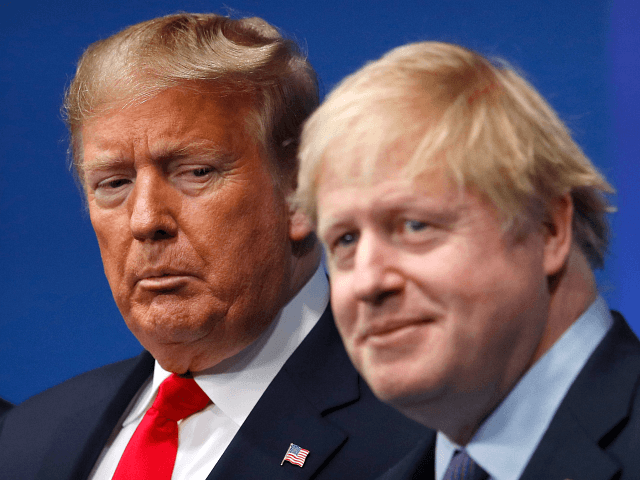President Trump offered a lifeline to the United Kingdom by exempting it from an anti-coronavirus ban on travel from Europe, but Boris Johnson’s government has thrown it back in his face, claiming the restrictions won’t work and complaining about their economic impact.
“The advice we are getting is that there isn’t evidence that interventions like closing borders or travel bans are going to have a material effect on the spread of the infection,” complained Rishi Sunak, Boris Johnson’s Chancellor of the Exchequer.
“That is why we have taken the decisions we have,” he said in comments to the Today programme on BBC Radio 4, reported by The Times.
British government ministers have, as yet, taken little direct action on the pandemic besides advise people to wash their hands for as long as it takes to sing the first two verses of God Save the Queen, several times a day.
Discussing the U.S.-Europe travel ban in more detail, Sunak claimed the Trump administration is “still deciding the details of what exactly [the policy] means.”
He made it clear that the Johnson administration is concerned by the economic impact of the coronavirus and measures to mitigate it, telling the BBC: “As I talked about yesterday [when presenting the budget], there will be an impact on the demand side of our economy as people are unable to spend in the way they normally would and travel, but it also affects the supply chains for businesses and that impacts the supply side of our economy.”
While several European nations are actually exempt from the travel ban — it only applies to members of the European Union’s passport-free Schengen travel zone, which includes several of the worst-impacted nations worldwide — President Trump name-checked only the United Kingdom during his address, a clear signal of interest in the nation.
The clash between Trump’s support for Britain and the British government’s pessimism is perhaps unsurprising, as while Prime Minister Johnson is often seen as something of a “British Trump” there are in fact many differences between the two.
For example, Johnson is a committed market-first free trader, where Trump has sought to bring jobs back to America; Johnson is an enthusiast for working with the Chinese Community Party (a stance which already caused ructions with the U.S. and other allies after it saw Johnson agree to involve China in British 5G infrastructure) where Trump sees the regime as a global threat; and Johnson is a supporter of illegal migrant amnesties, where Trump has border control as a key plank in his platform.
While many politicians from countries failing to ban travel from countries infested with the coronavirus have, like Sunak, claimed they would make no difference, they seldom offer any explanation as to how they could not slow its spread.
Mongolia, for example, closed its border with China in late January and restricted travel from Japan and South Korea shortly thereafter.
It did not report its first coronavirus case until March 10th — which arrived via a French worker — buying it significantly more time than countries like Britain and Italy, where it is now endemic.
Follow Jack Montgomery on Twitter: @JackBMontgomery
Follow Breitbart London on Facebook: Breitbart London

COMMENTS
Please let us know if you're having issues with commenting.